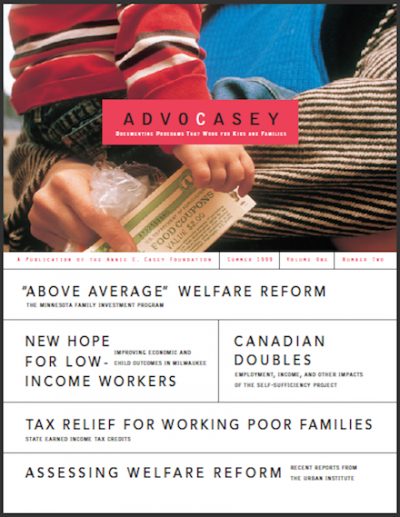A Weak Link
Among long-term welfare recipients in rural areas, MFIP failed to generate lasting positive gains in either employment or earnings.

This edition of AdvoCasey examines the ripple of changes sparked by the landmark federal welfare law of 1996. Readers will learn about an array of financial incentive programs — in both the United States and Canada — that are helping welfare recipients secure work and bigger paychecks. A smaller story reviews one of America’s most effective anti-poverty programs, the Earned Income Tax Credit.
AdvoCasey is a seasonal publication with themed issues that spotlight programs and policies making measurable differences in the lives of kids and families.
The Minnesota Family Investment Program (MFIP) enables welfare recipients to mix earnings and public assistance while requiring them to participate in training and job-related activities. One early review of the program found that it boosted earnings and employment gains among long-term welfare recipients relative to a control group receiving support through the Aid to Families with Dependent Children program.
We hope you'll find value in this report. We’d love to get a little information from you, which we'll use to notify you about relevant new resources.